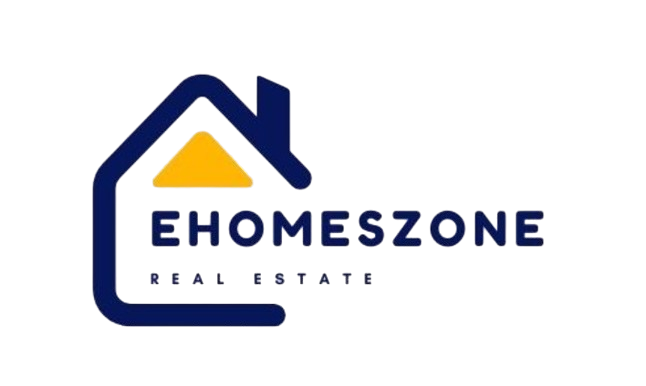A home equity loan can be an incredibly powerful financial tool when used wisely. Essentially, it allows homeowners to borrow against the equity they’ve built up in their property. This kind of loan can come in handy for various purposes, such as home renovations, consolidating high-interest debts, or investing in a new venture. However, with the opportunity comes responsibility. In this article, we’ll delve into the most effective ways to use a home equity loan to ensure you make the best financial decisions.
Understanding Home Equity Loans
Before we get into how to use a home equity loan wisely, it’s crucial to grasp what it entails. A home equity loan is a type of loan where you use the equity in your home as collateral. Your equity is the difference between your home’s market value and the outstanding balance on your mortgage. Home equity loans typically offer fixed interest rates, which means your monthly payments remain stable over the loan’s term.
Key Features of Home Equity Loans
- Fixed Interest Rates: Unlike home equity lines of credit (HELOCs), home equity loans usually come with a fixed interest rate, ensuring predictable monthly payments.
- Lump-Sum Payment: You receive the loan amount in one lump sum, making it ideal for major expenses.
- Repayment Terms: The repayment period can vary, usually ranging between 5 to 30 years, depending on the loan’s terms.
Understanding these features will help you decide if a home equity loan is suitable for your financial needs and goals.
Best Uses for a Home Equity Loan
A home equity loan should not be taken lightly. Borrowing against your home’s value involves significant risk, and misusing it can lead to financial trouble. Here are the most sensible and beneficial ways to use a home equity loan:
1. Home Improvements and Renovations
One of the most popular uses of a home equity loan is for home improvements. Renovations not only enhance your living space but can also increase the overall value of your property. When done strategically, this can offer a great return on investment. For example, upgrading a kitchen or adding an additional bathroom can significantly boost your home’s market value. The fixed interest rate on a home equity loan makes it a good choice for this purpose, as you’ll know your exact monthly payments throughout the project’s duration.
2. Debt Consolidation
If you have multiple high-interest debts, such as credit card balances, personal loans, or medical bills, a home equity loan can be an effective way to consolidate debt. The fixed, lower interest rates on home equity loans can save you money over time by reducing the amount you pay in interest each month. This approach simplifies your payments by merging various debts into one manageable monthly installment. However, it’s essential to be disciplined with this method to avoid accumulating new high-interest debt.
3. Educational Expenses
Financing education can be another wise use of a home equity loan. Instead of taking out high-interest student loans, using a home equity loan with its lower, fixed interest rate can make educational expenses more affordable. This is particularly useful if you’re planning to fund a child’s college education or your own career development. However, it’s crucial to weigh the potential return on investment from the education compared to the risk of borrowing against your home.
4. Starting or Expanding a Business
For entrepreneurs, using a home equity loan to fund a business can be a viable option. Traditional business loans can be difficult to obtain, especially for startups, so tapping into your home’s equity could provide the necessary funds to get your business off the ground. However, this strategy involves a high level of risk. You should only consider this option if you have a solid business plan and are confident in your venture’s potential success.
5. Emergency Fund
While it’s generally advised to maintain a separate emergency savings fund, there might be situations where accessing a large sum of money quickly is necessary. In such cases, a home equity loan can act as a safety net. For example, covering medical expenses or unexpected major repairs can justify the use of a home equity loan. However, this should be approached cautiously, ensuring that you’re not jeopardizing your home’s equity for non-essential or non-urgent needs.
Things to Avoid When Using a Home Equity Loan
1. Funding Luxuries
Using a home equity loan for non-essential luxuries, like vacations, expensive electronics, or a new car, is generally a poor financial decision. These items depreciate quickly and do not offer a return on investment. When you borrow against your home for such expenses, you risk losing your home if you cannot make payments.
2. Paying Off Short-Term Debts
While consolidating high-interest debt can be a good use of a home equity loan, paying off short-term debts that can be managed through other means may not be the wisest choice. For instance, using a home equity loan to pay off a car loan or small personal loans could mean extending the debt repayment period unnecessarily, which could cost more in the long run.
3. Over-Borrowing
One of the most common pitfalls of home equity loans is over-borrowing. Just because you can access a large sum doesn’t mean you should take it all. Borrow only what you need, and make sure you have a clear plan for repayment. Remember, your home is on the line, and defaulting on payments could lead to foreclosure.
How to Use a Home Equity Loan Wisely: Pro Tips
- Set a Budget: Before taking out a home equity loan, establish a clear budget for how you will use the funds. This will help you avoid overspending and keep track of your expenses.
- Compare Lenders: Shop around and compare offers from multiple lenders to secure the best interest rate and terms for your home equity loan.
- Plan for Repayment: Ensure that your monthly income can comfortably cover the loan payments without compromising other financial obligations.
- Consult a Financial Advisor: A professional can help you assess whether a home equity loan is a suitable financial move and guide you in using it most effectively.
Conclusion
A home equity loan can serve as a practical financial tool when used responsibly. By focusing on investments that can yield long-term benefits, like home improvements or consolidating high-interest debts, you can make the most out of the loan without risking your financial security. However, it’s crucial to avoid using it for frivolous spending or short-term expenses that do not contribute to building wealth. Always remember that borrowing against your home’s equity carries inherent risks, so make sure to approach it with careful consideration and planning.





Find Us on Socials